The disturbing trend of one novel, many films
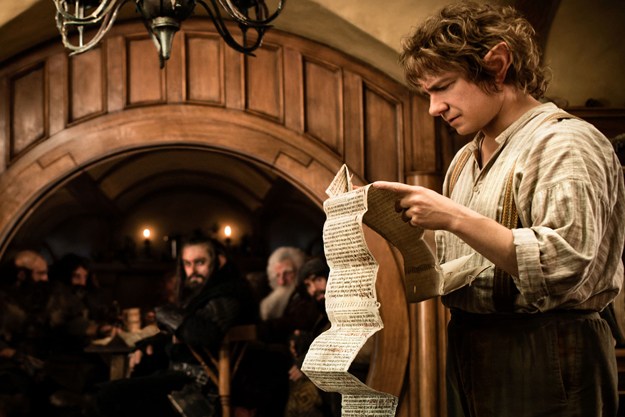
There’s something nasty about this practice of splitting single books into several movies, a trend continuing with the upcoming trilogy of ‘The Hobbit’.
Remember when one novel could be made into one film? Well there was a time — a time before studios insisted on splitting single books into two or even three different movies. With the recent news about The Hobbit becoming three films, it’s time to address this trend.
The problem with this practice is that, like so many things, it’s motivated purely by money. What’s particularly cynical about it is that filmmakers deny this, claiming that the decision to make one novel into several films is somehow an artistic one.
Peter Jackson claimed that the reason for The Hobbit becoming a trilogy of films was to get more of the book onto the screen; “Do we take this chance to tell more of the tale? And the answer from our perspective as the filmmakers, and as fans, was an unreserved ‘yes.’” What about as business people? Of course they want to make as much money as possible, and The Hobbit is a cash cow. Or a cash … oliphaunt? I don’t know, I don’t really like The Lord of the Rings. The point is, it’s a guaranteed money-maker, so obviously they want to milk it dry. But what’s objectionable is claiming that it’s for the benefit of the fans, when the reality is that the fans are just being used; there’s something quite deceptive and even nasty about that.
Those who defend the decision to split single books into multiple movies argue that it is important to be as faithful to the book as possible, and one film is simply not long enough to do justice to the detail of the novel. This does make for an interesting debate about just how faithful a movie adaptation needs to be. This is often made difficult by confusion over what we mean by “faithful.”
An adaptation should be faithful in its retention of themes and tone, but in terms of plot, detail and even characters, it needn’t be particularly faithful at all. Books and films are very different, and if you can’t fit every aspect of a novel into a movie, then don’t. Part of the art of narrative is working out what and what not to include. If you have to divide your adaptation into several parts, you have failed.
It’s understandable that fans of books would be protective of their content and would want every detail intact after the transition to the big screen. But it’s important to realise that art is versatile; look at Andrea Arnold’s Wuthering Heights from last year. It omitted about half the book, and as a result was a focused and beautiful piece of cinema. Apart from the Mumford & Sons song at the end, obviously.
In any case, The Hobbit is only about 300-400 pages long; making that into three films seems ridiculous, especially when you consider that Joe Wright’s new adaptation of Tolstoy’s 800-page Anna Karenina fits into a single film.
Meanwhile, the final Harry Potter book was made into two films, the first of which was totally redundant, as absolutely nothing happened. Mind you, the first seven Harry Potter films were totally redundant. But that penultimate waste of time made the whole decision to split up that last book seem particularly greedy, and sneering with it. And I’ve not read the Twilight books, but I refuse to believe for a second that there’s enough of worth in there to justify dividing the last book into two films. But then teenage girls have a lot of money, and if Stephenie Meyer wants to exploit that while instilling in them a profound sense of gender-based inferiority, then who am I to judge.
My favourite movie adaptations of novels (Fight Club, American Psycho, A History of Violence … yes it’s a graphic novel, but it counts) all fit into single films while leaving the heart of the books well and truly intact. A film is not a book, and art tends to be at its best when trying something different. So stop wringing out every last commercial drop from these pieces of literature like George Lucas if he could read, and stop deceptively claiming that it’s for the fans when they’re the ones being exploited.
 CliqueClack
CliqueClack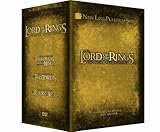
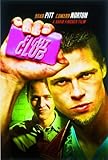
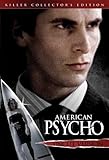

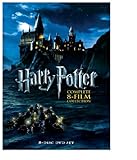
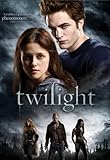

I completely see where you’re coming from, while at the same time I’m still holding out to at least hear what we can expect each of those three movies to have. I’ve heard conflicting things about where the movie splits, if it even does “split,” for example.
Still, it is a bunch of bullshit that this is not about money.
It doesn’t bother me a bit, Pard. I look forward VERY MUCH to these films coming out. The three Hobbit movies will make perfect companion pieces to the three Lord of the Rings films in my home library. They will be an enjoyable experience for young and old alike. Get a grip, Dude! Jeeez!
And QUIT your juvenile whining, bitching and moaning. The fans aren’t being “exploited”, they’re being rewarded and entertained. Peter Jackson does superlative work. You either like this stuff or you don’t. If you DO, then you’re a fan and will be GLAD to see they’ve made three films rather than only one. Anybody who feels be’s being victimized or exploited can simply stay home and watch “Wheel of Fortune” on TV.
Dan I agree with you. Thank you for writing that. I just want to add that I love the Harry Potter books and the films actually did them justice. I loved that the movies were so long and I loved that they split the last book up so that they could add as much from the book as possible.
But to each his own.
Be well everyone and happy movie going!
While I appreciate your perspective, there are two points that should be considered:
1. The unabridged audio version of the Hobbit is 12 hours long. We’re so used to novels being drastically condensed that when a filmmaker decides to tell the entire story, it seems strange.
2. The Hobbit trilogy will contain a great deal more than what took place in the book. That’s because Tolkien wrote an epic backstory that chronicles what took place off-stage in the children’s book. Remember how Gandalf vanished for half the novel, and then reappeared at the end of The Hobbit? During that period he and the White Council embarked on an epic endeavor of their own, which sets the stage for Fellowship of the Ring.
Because The Hobbit is being divided into 3 films, as opposed to just one, Jackson has the chance to tell the full story, and show how the events of the Hobbit fit into the greater history of Middle Earth. I, for one, am thrilled.
I don’t see how they can possibly drag that story over three movies without making up a hell of a lot of material to fill in the gaps and make each one exciting.
Wow, the commenters in the Film section seem a bit more… dogmatic… than I’m used to seeing in the TV section.
The Hobbit could easily fit into one of Jackson’s usual 3-4 hour movies. The rest of the running time will be filled with contemporaneous events, it’s true, but Tolkien basically wrote those as historical texts in his appendices and apocrypha, not narratives in any true sense. Most of that story needs must be invented out of whole cloth by the screenwriters if it’s more than Ian McKellen’s booming voiceover. Personally, I’d rather spend that time with Beorn, Bard, and Dain II than with Radagast the Brown, but we’ll see how it turns out.
My main problem is that I just saw the second trailer in 3D last night, and it looked terrible to my eyes. There was very little depth of field, so that each layer of the image appeared as sharp and in focus as those in front of and behind it, ViewMaster 3D-style. And I assume the trailer was running at 24 fps, not that awful 48 fps which as far as I’ve read the actual film will still be. Watching the same trailer in 2D online later was a much better experience. Perhaps I should just wait for the Blu-rays of these films?